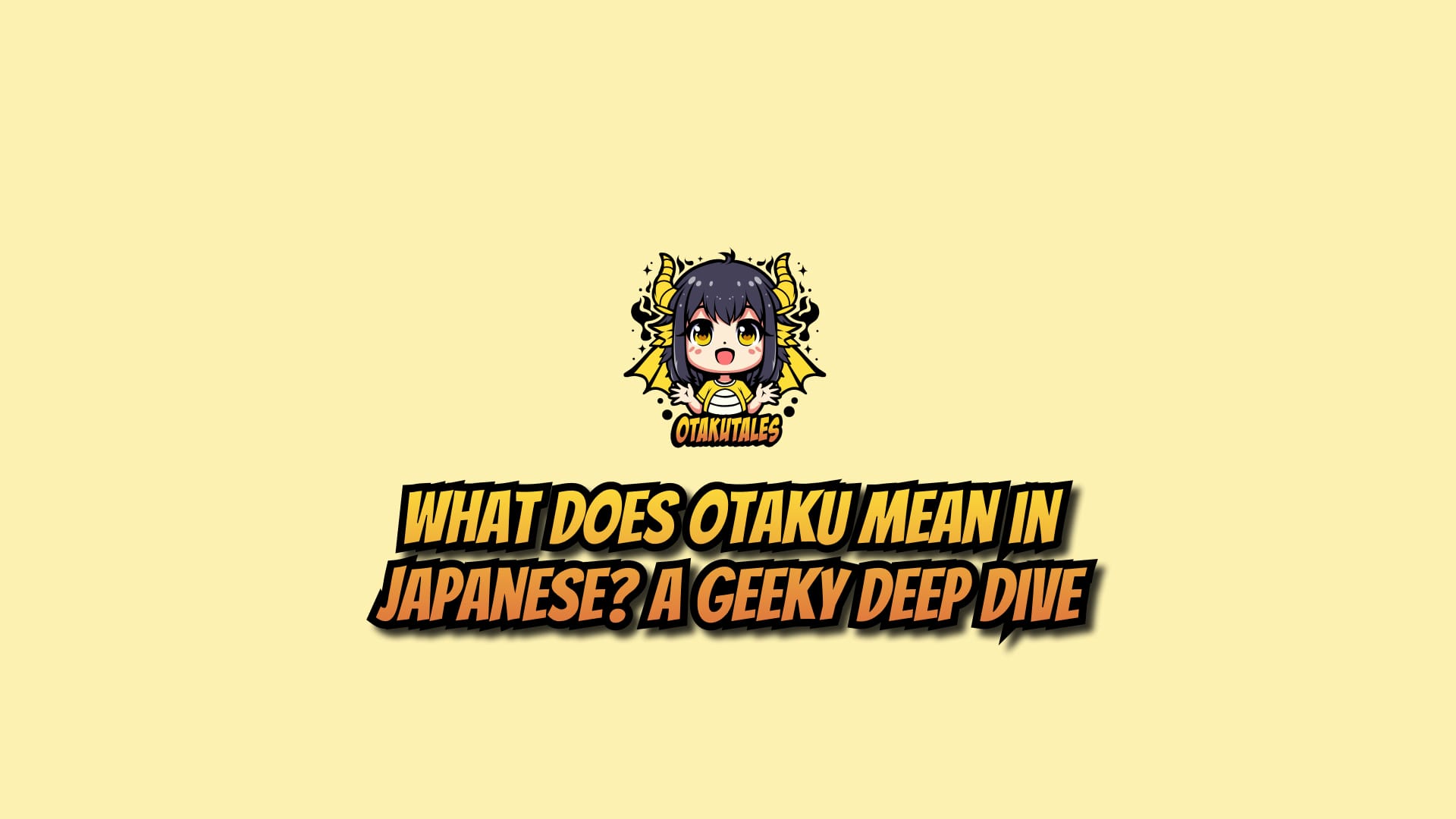Hey there, fellow anime enthusiasts and curious cats!
Ever wondered what "otaku" really means in Japanese?
Well, buckle up, because we're about to embark on a journey that's more twisty than the plot of Neon Genesis Evangelion!
First things first, let's address the burning question: what does otaku mean in Japanese?
In its simplest form, otaku refers to someone with intense, consuming interests, often in anime, manga, video games, or tech.
But oh boy, is there more to unpack here than Doraemon's 4D pocket!
The term "otaku" has had quite the character arc in Japan. It started as a formal way to say "you" (kinda like how Kenshin says "this one" in Rurouni Kenshin), but then it took on a life of its own.
In the 80s, it became associated with people who were super into their hobbies.
Now, here's where things get trickier than solving a Death Note case.
The meaning of otaku has been shifting faster than Naruto using his Shadow Clone Jutsu.
At first, it had a pretty negative vibe in Japan, like being called a mega-nerd who never leaves their room.
People thought otaku were as socially awkward as Shinichi Izumi trying to act normal in Parasyte.
But times are changing!
These days, being an otaku isn't always seen as a bad thing.
It's kinda like how being a "geek" went from an insult to a badge of honor. Some people wear the otaku label proudly, like Ash Ketchum showing off his gym badges.
In the West, we've borrowed the word, but we've put our own spin on it.
Here, otaku usually means someone who's really into anime and manga.
So, is being called an otaku good or bad? Well, it's complicated.
It really depends on who's saying it, who's hearing it, and the context. It's like how calling someone "baka" can be an insult or a term of endearment, depending on the situation.
The takeaway? Language is as fluid and changeable as the form of a Miyazaki spirit.
"Otaku" might mean different things to different people, but in the end, it's all about celebrating what you love.
So next time someone asks you "what does otaku mean in Japanese?", you can give them the full scoop.
And remember, whether you identify as an otaku or not, the most important thing is to enjoy what you love.
After all, isn't that what being a fan is all about?







